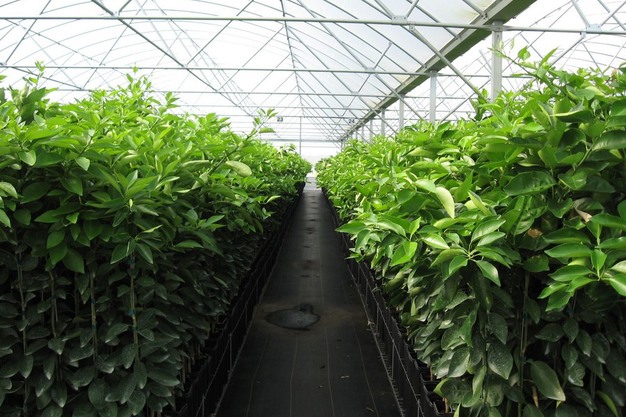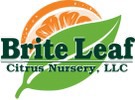While Hurricane Milton caused concern for Florida's citrus industry, for the citrus nurseries in the state, the damage depended largely on where the nursery was located. "Several nurseries received damage in Hurricane Milton–there was damage to the materials on the greenhouses. So the plastic ripped or came off, etc.," says Nate Jameson, manager of Brite Leaf Citrus Nursery in Lake Panasoffkee, Florida, adding that some of those nurseries also had significant structural damage.
That left a pressing concern for the young trees. If they were left exposed for several days, they could have been affected by the Asian Citrus Psyllid, the insect that spreads the citrus greening disease (huanglongbing or HLB), a disease that has severely affected the Florida citrus industry. There were also concerns about the exposure spreading citrus canker, another disease that has affected the industry. "Though most nurseries have been dealing with these diseases for a very long time and were prepared to recover and repair very quickly. The likelihood was minimal," Jameson says.
Fruit loss for growers
As for growers and Hurricane Milton, the biggest challenge they saw was fruit loss due to high winds dropping fruit. "The numbers are still being assessed but I've heard numbers as high as 30 percent of the fruit on the tree as an industry had been shaken off," he says.

Jameson says these hurricane impacts come on top of an already challenged Florida citrus industry. "We're now almost 20 years into the discovery of HLB and the total acres of citrus in Florida is already significantly reduced," he says, adding that Florida has seen 60-70 percent of its acreage has gone out of production. "As a result, the industry as a whole in Florida is in dire straits."
That means that with what he describes as a depressed Florida citrus industry, the demand for nursery trees isn't as great as it once was. For the last 20 years, Florida has produced approximately 4 million trees per year and the majority of those have gone into commercial plantings. "Because that demand is not there, nurseries don't have the income stream they used to have, and smaller businesses who may have significant damage, it's likely a few of them may just say they're done because they can't justify the reinvestment by fixing the damage," says Jameson.
Looking ahead in Florida
So where to from here? For one, there is continued exploration of technologies to help Florida growers contend with HLB particularly, whether it's protective netting, injections, genetic developments, or more. (Look no further than the increase of growing citrus under protective screens or C.U.P.S. which is being increasingly invested in.) "The idea is that the solution for the disease is many, many years away but they will be able to return the investment in these protective screens with a high-value crop such as dark red grapefruit under these structures," says Jameson, adding that other crops would include easy-peel tangerines. However, it may not work for commodities such as orange juice oranges. "The numbers don't work for those because orange juice is so much of a commodity."
Jameson says work in the citrus nursery industry is the first step in developing a sellable commercial tree. "We have research institutions around the country trying to develop new genetics to withstand HLB. However, if somebody comes out with a new set of genetics, there would be an extreme lag time in getting those genetics to market. So how do we keep our nursery industry viable in the event an institution comes up with those genetics?" asks Jameson.
 For more information:
For more information:
Brite Leaf Citrus Nursery
Tel: +1 (352) 793-6861
[email protected]
https://www.briteleaf.com/
